Prostate cancer: the dark side of immune response
Institutional Communication Service
An international research team led by Dr. Andrea Alimonti of the Faculty of Biomedical Sciences at USI and the Institute of Oncology Research (IOR) has come up with an innovative method of stopping the evolution of prostate cancer. The study was published today in Nature.
Prostate tumours are the most common form of cancer in adult males. Despite recent advances in treatment, in a high percentage of patients who initially respond to surgery and antiandrogen therapy, the disease evolves into an aggressive, resistant and inevitably fatal form. For decades, oncologists and researchers were unanimous in believing that the target to strike in order to stop this progression were the male hormones (androgens and testosterone, which fuel the tumour's growth); without these, in fact, the prostate cancer cells start to die off. Later, however, those cells fight back and manage to survive, even without their essential nutrient. How the tumour managed to withstand the lack of androgens and come back stronger than ever had been, up to now, a mystery.
The answer was discovered by a young researcher, Arianna Calcinotto, a member of Dr. Alimonti's international research team. Working with partners in the United Kingdom and in Italy, the researchers found elevated levels of interleukin-23 (IL-23) in the blood and in the tumours of most patients resistant to antiandrogen therapy. "We noticed", Dr. Alimonti explains, "that the release of IL-23 in the tumour is caused by a particular type of immune cell (called myeloid cells), which make it treatment resistant - like a "dark force" - by allowing the survival and proliferation of the prostate cancer cells."
The next step will be to run clinical trials and identify the antibody that can selectively block IL-23. Dr. Alimonti continues, "Our research will be the basis for a promising clinical study in prostate cancer patients, similar to research underway for the treatment of disorders such as psoriasis, which is very well tolerated by patients." Immunotherapy has recently achieved excellent clinical results in various types of cancer. However, while most immunotherapies currently in use aim to reactivate the immune system that has stopped working because of the tumour, this study emphasizes a different concept of immunotherapy that blocks the tumour-feeding factors produced by immune cells.
"I have dedicated my entire professional life to research," Dr. Alimonti concludes, "so that clinical trials can be run on discoveries that might change the course of diseases still thought to be incurable. This study, then, is my greatest achievement. Researchers lead difficult lives and we need to be very persistent, especially women, who still have trouble reaching top positions despite their great creativity and determination. So I am thrilled that the lead author of this study is Arianna Calcinotto."
Andrea Alimonti (b. Rome, 7 September 1975) is an internationally renowned oncologist known for his research into the mechanisms that regulate tumour cell senescence, the development of mouse models for the study of tumour progression and the identification of new treatments for prostate cancer. He has a medical degree from Università La Sapienza, where he specialized in Clinical Oncology. From 2004 to 2009 he worked under Dr. Pier Paolo Pandolfi in the United States, first at Memorial Sloan-Kettering Cancer Center and later at BIDMC - Harvard Medical School. Since 2011 he has run the Molecular Oncology lab at the Institute of Oncology Research in Bellinzona. He is a professor of oncology at Università della Svizzera italiana and of pharmacology at the University of Padua, researcher at Istituto Veneto di Medicina Molecolare (V.I.M.M.). Alimonti has won CHF 1M in funding from the J. Steiner Foundation, considered the "Nobel Prize" for cancer research. He is a member of the European Molecular Biology Organization (EMBO) and has won two European Research Council (ERC) grants, the most prestigious research funding offered in Europe.
Arianna Calcinotto (b. Seregno, 19 April 1984) is a young Italian immunologist. After earning a degree in molecular biotechnology from the University of Milan-Bicocca, in 2015 she earned an international Ph.D. in molecular medicine from Vita-Salute San Raffaele University. Her research career began in 2008 at the cellular immunology lab directed by Dr. Matteo Bellone, where as an undergraduate and later a Ph.D. candidate she studied the interaction between the immune system and cancer. Her doctoral work brought her to the United States for several months, where she worked in Dr. Leif Bergsagel's lab at the Mayo Clinic. In late 2015 she began her post-doctorate research at the molecular oncology lab run by Andrea Alimonti.
Nature: http://www.nature.com/nature/
http://authors.springernature.com/share
Doi code: 10.1038/s41586-018-0266-0
Faculty of Biomedical Sciences: https://www.biomed.usi.ch/
The Institute of Oncology Research (IOR) www.ior.usi.ch
Picture: Immunofluorescence staining of tumor- infiltrarting myeloid cells in a metastatic prostate tumor biopsy of a patient affected by castration-resistant prostate cancer. In light green are depicted the myeloid cells infiltrating the prostate tumor in yellow. Image from the team of Prof. Johann de Bono, UK.




